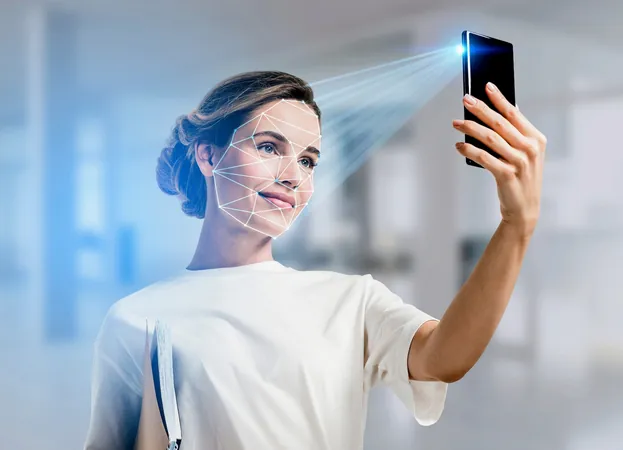
Revolutionary AI Tool Uses Selfies to Predict Cancer Risk
2025-05-12
Author: Ling
A Game Changer in Cancer Care
Imagine an algorithm that can assess a simple selfie and reveal not just how old you look, but how your body is truly aging. A groundbreaking study led by scientists from Mass General Brigham has birthed FaceAge, a pioneering AI tool poised to revolutionize cancer care.
The Science Behind FaceAge
This innovative tool is the result of rigorous training on nearly 60,000 images of healthy individuals, followed by testing on over 6,000 cancer patients undergoing radiotherapy. The findings are staggering: patients often appear five years older than their actual age, with each extra year significantly impacting life expectancy.
From Selfie to Medical Insight
FaceAge employs deep learning to analyze intricate facial features—skin texture, muscle tone, eye shape—and distills this data into a single numerical value representing biological age. This process offers a more objective measure compared to traditional assessments, which often rely on subjective judgment.
AI’s Role in Cancer Prediction
The study revealed that patients with a biological age over 85 had the poorest outcomes, even when accounting for sex, tumor type, and chronological age. Hugo Aerts, director of the Artificial Intelligence in Medicine program at Mass General Brigham, emphasized: "Our study demonstrates that a simple selfie can contain vital information that aids clinical decision-making."
Uncovering Hidden Signals
Predicting life expectancy for terminal patients has long been a challenge. In a separate evaluation, a panel consisting of clinicians was only slightly better than chance when guessing survival based on traditional data. However, when the AI predictions from FaceAge were factored in, the accuracy improved dramatically, hinting that the technology captures signals often overlooked by physicians.
Teaching AI to See Age
The development of FaceAge began with public image banks of nearly 59,000 faces, which helped the model learn to recognize normal aging patterns. When applied to patient images taken during therapy preparation, it linked visual appearance to health outcomes—bridging the gap between appearance and reality.
Future Potential and Caution
While FaceAge shows immense promise, it still requires validation across diverse populations. Factors like cosmetic surgery and cultural skin care practices could skew results. The research team plans to follow patients over time to assess how biological age changes with treatment.
More Than Cancer: A New Biomarker Frontier
This technology isn't just limited to cancer; it could have far-reaching implications for monitoring chronic diseases linked to aging. According to co-senior author Ray Mak, "As we reframe various chronic conditions as diseases of aging, predicting individual aging trajectories becomes even more crucial."
The Road Ahead
FaceAge represents an exciting intersection of AI and healthcare, potentially transforming single selfies into valuable medical data. If further trials validate these findings, clinics could soon leverage this technology to enhance patient care significantly.
Imagine a future where a mere photograph aids in determining your treatment plan, offering a quicker, unbiased assessment of your health. With proper oversight and ethical considerations, FaceAge could redefine how we understand aging and disease.
The research piece is published in The Lancet Digital Health, illustrating the potential impact of AI on medicine.


 Brasil (PT)
Brasil (PT)
 Canada (EN)
Canada (EN)
 Chile (ES)
Chile (ES)
 Česko (CS)
Česko (CS)
 대한민국 (KO)
대한민국 (KO)
 España (ES)
España (ES)
 France (FR)
France (FR)
 Hong Kong (EN)
Hong Kong (EN)
 Italia (IT)
Italia (IT)
 日本 (JA)
日本 (JA)
 Magyarország (HU)
Magyarország (HU)
 Norge (NO)
Norge (NO)
 Polska (PL)
Polska (PL)
 Schweiz (DE)
Schweiz (DE)
 Singapore (EN)
Singapore (EN)
 Sverige (SV)
Sverige (SV)
 Suomi (FI)
Suomi (FI)
 Türkiye (TR)
Türkiye (TR)
 الإمارات العربية المتحدة (AR)
الإمارات العربية المتحدة (AR)